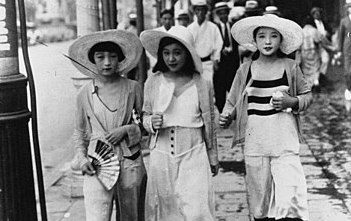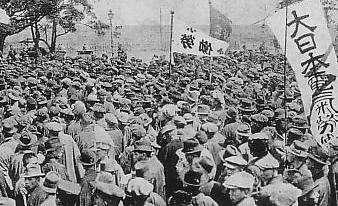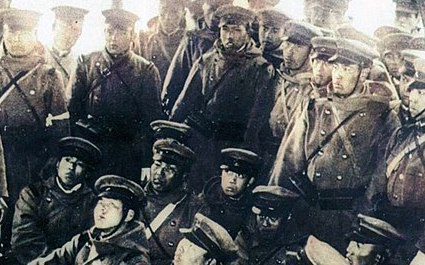Japan novelist and Miyamoto Yuriko (1899-1951): Communist, Feminist, and torture
Lee Jay Walker
Modern Tokyo Times

The Japanese novelist and short-story writer Miyamoto Yuriko (1899-1951) could have easily melted into the conformist background of the times. Yet Miyamoto, despite her privileged background, decided to be true to her own political and social beliefs throughout her life.
This came at a very high price, especially during the nationalist and militarist period of the early Showa Period. Thus – during political interrogation and torture in 1942 – she suffered a horrendous heatstroke that would forever impact her health until dying in 1951. However, Miyamoto never gave in to her tormentors because she was a committed communist.
Miyamoto felt social injustice strongly while studying at Ochanomizu Girls’ Middle School in Tokyo when only young. Hence, while economic class issues led her to socialism – witnessed in her works Noson (Farming Village) and Mazushiki hitobito no mure (A Crowd of Poor People) – feminism would equally become important.

Miyamoto was an avid reader when still a teenager. Thus the works of Anton Chekhov, Fyodor Dostoyevsky, Maksim Gorky, Friedrich Nietzsche, Edgar Allan Poe, Romain Rolland, Lev Tolstoy, Ivan Turgenev, William Shakespeare, and others were avidly read. She equally versed herself with powerful Japanese writers of the Meij and early Taisho periods.
Miyamoto stayed in the Soviet Union between 1927-1930. It is easy to say that she probably never witnessed the real Soviet Union. However, most Americans – and visitors to America – don’t witness the social ills of 100,000 overdose deaths in a 12 month period, over 500,000 homeless, high crime, and other social ills that blight millions of Americans in modern times. Hence, the collectivization programs of Soviet planning and the role of women in Soviet society probably looked dynamic in this period of history. After all, slavery only became illegal in the land of Mecca in the early 1960s, European empires were exploiting far and wide, and the Great Depression from 1929 and continued into the 1930s witnessed mass international upheavals.
Between 1932 and 1942, Miyamoto was arrested frequently along with other communists. Thus she served roughly two years in prison. However, up until her death, her loyalty to communism remained.

Shortly before her death in 1951 – and suffering the health convulsions of her interrogation in 1942 – she wrote novels frequently. This concerns Banshu heiya (The Banshu Plain, 1947), Fuchiso (The Weathervane Plant, 1947), Futatsa no niwa (The Two Gardens, 1948), and Dohyo (Landmark, 1950). Therefore, to the very end, Miyamoto refused to bow down to anti-Communist forces in Japan nor her declining health.

PLEASE DONATE TO HELP MODERN TOKYO TIMES
Modern Tokyo News is part of the Modern Tokyo Times group
DONATIONS to SUPPORT MODERN TOKYO TIMES – please pay PayPal and DONATE to sawakoart@gmail.com
http://moderntokyotimes.com Modern Tokyo Times – International News and Japan News
https://www.pinterest.co.uk/moderntokyotimes/ Modern Tokyo Times is now on PINTEREST
http://sawakoart.com – Sawako Utsumi personal website and Modern Tokyo Times artist
https://moderntokyonews.com Modern Tokyo News – Tokyo News and International News
PLEASE JOIN ON TWITTER
https://twitter.com/MTT_News Modern Tokyo Times
PLEASE JOIN ON FACEBOOK